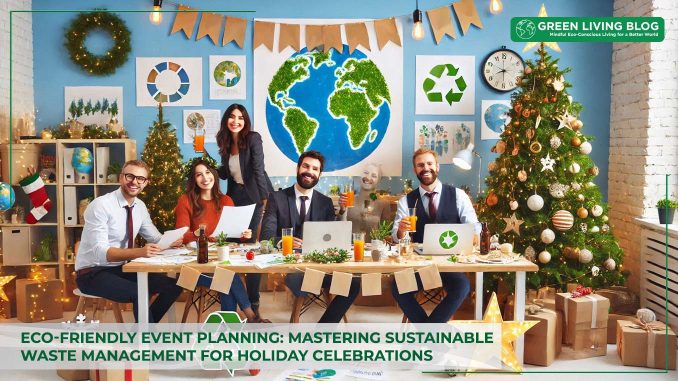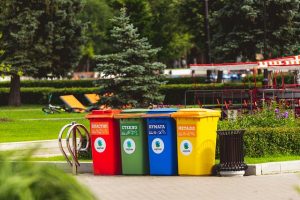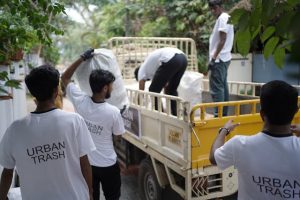
Planning a holiday celebration can be a joyful endeavor, but it often comes with significant environmental challenges.
As awareness grows about the impact of waste on the planet, many are seeking ways to host festivities that align with sustainable practices. Eco-friendly event planning emphasizes waste management strategies that minimize ecological footprints while still delivering unforgettable experiences.
Incorporating sustainable waste management into holiday events means making intentional choices about materials, food, and decorations. Simple actions, like using biodegradable tableware or reducing single-use plastics, can significantly reduce waste. By focusing on these aspects, planners not only enhance the holiday spirit but also contribute positively to the environment.
Choosing to prioritize sustainability in holiday event planning reflects a commitment to the planet. As more people aim to create memorable moments without excessive waste, understanding how to implement effective waste management practices becomes essential.
With the right strategies, holiday celebrations can be both festive and environmentally responsible.
Principles of Sustainable Waste Management

Sustainable waste management involves strategic approaches to minimizing waste generation and promoting responsible disposal methods. Effective strategies, such as reducing waste at the source, encouraging reuse, and properly managing organic materials, play a crucial role in eco-friendly event planning.
Reduce, Reuse, Recycle
The “3 R’s” of waste management are essential for sustainability.
- Reduce focuses on minimizing waste production through careful planning. This can be achieved by choosing products with minimal packaging and avoiding single-use items.
- Reuse encourages the use of items multiple times before disposal. For example, decorations and materials from previous events can be repurposed, saving both resources and costs.
- Recycle involves the collection and processing of materials like paper, plastics, and metals. Setting up designated bins for recyclables can facilitate proper separation at the event, ensuring that more items are diverted from landfills.
By actively incorporating the 3 R’s, event planners contribute significantly to waste reduction.
Local Sourcing and Seasonal Selection
Local sourcing means procuring materials and supplies from nearby vendors. This practice supports the local economy and reduces the carbon footprint associated with transportation.
Incorporating seasonal selection further boosts sustainability. Choosing seasonal ingredients for catering reduces the need for imported foods, which often involve higher energy costs and environmental impacts.
Benefits of Local Sourcing and Seasonal Selection:
- Supports local farmers and businesses.
- Reduces greenhouse gas emissions.
- Ensures fresh and flavorful ingredients.
Both practices enhance the sustainability of events while fostering a strong community connection.
Composting Organic Waste
Composting is a natural way to recycle organic waste. It converts food scraps and biodegradable materials into nutrient-rich soil additives.
Implementing composting at events can significantly decrease waste sent to landfills. Setting up compost bins for food waste, such as vegetable peels or paper napkins, encourages responsible disposal.
Essential Composting Tips:
- Clearly label compost bins to prevent contamination.
- Educate guests on compostable materials.
- Collaborate with local composting facilities for large-scale events.
By managing organic waste effectively, event planners can contribute to a healthier environment and promote sustainable practices among attendees.
Planning Eco-Friendly Holiday Events

Creating an environmentally responsible holiday event involves careful consideration of venue selection and decoration, as well as how invitations and communications are handled. The goal is to minimize waste and promote sustainability throughout the celebration.
Venue Selection and Decoration
Choosing a venue that aligns with eco-friendly principles is crucial. Look for locations that prioritize sustainability, such as those that utilize renewable energy sources or have green certifications.
Outdoor venues can leverage natural beauty, reducing the need for excessive decorations. When decorating, opt for reusable or biodegradable materials. For instance, use cloth tablecloths instead of disposables and choose live plants instead of cut flowers, which can be replanted or reused.
Lighting can play a significant role; consider solar-powered or LED options. This reduces energy consumption while still creating a festive atmosphere.
Invitations and Communication
Digital invitations significantly reduce paper waste compared to traditional printed options. They allow for creativity and can be customized easily. Using platforms such as email or social media for invites provides versatility and immediacy.
For those preferring a physical touch, recycled paper invites can be an alternative. Ensure to inform guests about eco-friendly practices planned for the event, encouraging collective participation.
Communication can extend to social media, where updates and changes can be shared instantly with a broad audience. Using online tools helps streamline the planning process while supporting a sustainable approach to holiday celebrations.
Implementing Green Practices During the Event

Incorporating eco-friendly practices during holiday events can significantly reduce the environmental impact. Focusing on sustainable catering, efficient waste management, and energy usage helps create a more responsible celebration.
Sustainable Catering Options
Choosing sustainable catering options is crucial for minimizing waste and supporting local agriculture. Event planners can select caterers who prioritize organic, locally sourced ingredients. This not only reduces the carbon footprint associated with transportation but also promotes community businesses.
Offering a plant-based menu is another effective strategy. Plant-based meals typically require less energy and water to produce compared to meat-based dishes. Attendees can be encouraged to try new, sustainable foods with clear labelling and informative signage.
Implementing a plan for leftovers is vital. Donating leftover food to local charities ensures it is consumed rather than thrown away. This step contributes to the community while minimizing waste.
Waste Sorting Stations
Waste sorting stations should be strategically placed throughout the event space. Clearly labeled bins for recycling, compost, and landfill items help attendees dispose of waste properly. They should include visual aids, such as images of acceptable items, to enhance clarity.
Providing compostable or recyclable serving ware further minimizes waste. Event planners can choose biodegradable plates and utensils to ensure everything thrown away can decompose or be recycled. This approach reduces the volume of waste traveling to landfills.
Staff should be present to assist with waste sorting to improve accuracy and engagement. Educating guests about the importance of proper waste disposal can promote more sustainable behaviors during the event.
Energy and Water Conservation
Utilizing energy-efficient equipment is essential for reducing overall energy consumption. Event planners can rent LED lighting and Energy Star-rated appliances to minimize electricity use.
Water conservation methods should also be implemented. Using low-flow faucets and toilets can significantly reduce water waste during the event. Attendees can be encouraged to reuse towels and linens to further decrease water usage.
Incorporate signage to promote conservation efforts. Informing guests about the steps being taken encourages their participation in saving resources. Simple reminders can make a large impact on overall consumption during the event.
Post-Event Sustainable Activities

After an event concludes, the focus shifts to assessing the sustainability efforts and addressing leftover materials. Two key areas to address are evaluating how well waste management strategies worked and finding responsible ways to donate leftover materials.
Evaluating Waste Management Success
Post-event evaluation is crucial for understanding the effectiveness of waste management strategies. This process involves gathering data on the types and amounts of waste generated during the event.
Event organizers can use waste audits to categorize waste streams, such as compostable, recyclable, and landfill items. A table format can help visualize the results:
| Waste Type | Amount Collected | Disposal Method |
| Recyclables | 50 lbs | Recycled |
| Compostables | 30 lbs | Composting |
| Landfill | 20 lbs | Landfill |
By analyzing this data, planners can identify successful practices and areas needing improvement, leading to better waste management for future events.
Donating Leftover Materials
Donating leftover materials is a sustainable way to benefit the community and reduce waste. Many non-profit organizations, shelters, and food banks welcome donations after holiday celebrations.
Before the event, organizers can establish connections with local charities that accept various items. This initiative includes leftover food, decorations, and supplies.
A list of potential donation opportunities may include:
- Food banks: They can often accept unopened and non-perishable food items.
- Charities: Many groups take gently used decorations and supplies.
- Community centres: They may need materials for future events or programs.
Setting up a donation plan ensures leftover materials find new homes, promoting sustainability and community support.
![]()
Author Profile
- Online Media & PR Strategist
- Blogger and Educator by Passion | Senior Online Media & PR Strategist at ClickDo Ltd. | Fascinated to Write Lifestyle Blogs in News & Education I have completed a journalism summer course at the London School of Journalism and manage various blogs.
Latest entries
 BusinessOctober 29, 2025Top 6 UK Government Green Funds & Grants for SMEs
BusinessOctober 29, 2025Top 6 UK Government Green Funds & Grants for SMEs List postOctober 16, 202510 Best Green Hosting Services in the UK
List postOctober 16, 202510 Best Green Hosting Services in the UK BusinessSeptember 9, 2025Top 5 Eco Certifications & Their Impact on Greener Businesses
BusinessSeptember 9, 2025Top 5 Eco Certifications & Their Impact on Greener Businesses LeisureSeptember 2, 2025Plant-Power: The UK’s Top 10 Vegan Festivals 2025
LeisureSeptember 2, 2025Plant-Power: The UK’s Top 10 Vegan Festivals 2025






Leave a Reply
You must be logged in to post a comment.